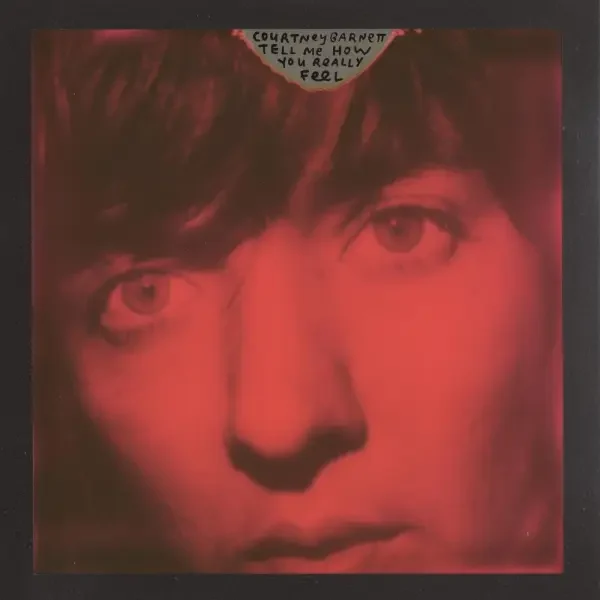Courtney Barnett
– Tell Me How You Really Feel
This isn’t an album that shouts to get your attention. It mutters, shrugs, glances sideways, then lands a line that stings for days. Tell Me How You Really Feel trades in the whip-smart observational charm of Barnett’s debut for something heavier, darker, and more internal. The guitars are rougher, the mood thicker, and the lyrics feel like scribbled notes from a mind that’s tired but trying.

Barnett doesn’t lean on clever punchlines this time. She sounds drained, occasionally pissed off, often vulnerable, and always locked into her own rhythm. The riffs come slow and fuzzy, like they’re crawling out of the Melbourne heat. And her delivery? It’s half sing, half sigh. But don’t mistake that for detachment—she’s not hiding here, just refusing to dress anything up. There’s catharsis in the haze, and a strange comfort in how she names the unnameable.
This album’s strength isn’t in loud declarations. It’s in the way Barnett handles discomfort—quiet rage, imposter syndrome, loneliness, the kind of self-doubt that shows up at 3 a.m. and overstays its welcome. She doesn’t solve anything, and that’s the point. She just lays it all out, distorted guitars and all, and lets you sit with it. The record’s honesty is raw, and that makes it stick.
Choice Tracks
Nameless, Faceless
A shot of venom disguised as slacker rock. Barnett tackles misogyny with scathing precision, borrowing a Margaret Atwood quote and wrapping it in sneering riffs. It’s catchy, biting, and blisteringly relevant.
Need a Little Time
Barnett unplugs just enough to let her voice waver. The melody is gentle, but the message is firm—she needs space, not saving. One of her most quietly powerful moments.
City Looks Pretty
Opens like a sun-drenched road trip, then drifts into melancholy. It captures the disconnect of being surrounded by people yet feeling totally alone. The shift in tempo halfway through is subtle but smart.
I’m Not Your Mother, I’m Not Your Bitch
Just over a minute long and completely feral. Barnett drops the pleasantries and spits fire. It’s raw, noisy, and cathartic as hell—like kicking a hole in a wall and feeling better instantly.
Crippling Self-Doubt and a General Lack of Confidence
The title tells you everything. It’s loud, loose, and disarmingly self-aware. She takes insecurity and turns it into an anthem you can yell along to in traffic.
Tell Me How You Really Feel might not have the immediate charm of Barnett’s debut, but it lingers longer. It’s a bruised, slow burn of a record, full of unresolved feelings and jagged edges. Sometimes it drifts. Sometimes it hits like a brick. And in all of it, Barnett’s voice—deadpan, wry, achingly human—cuts through the fuzz like truth.

